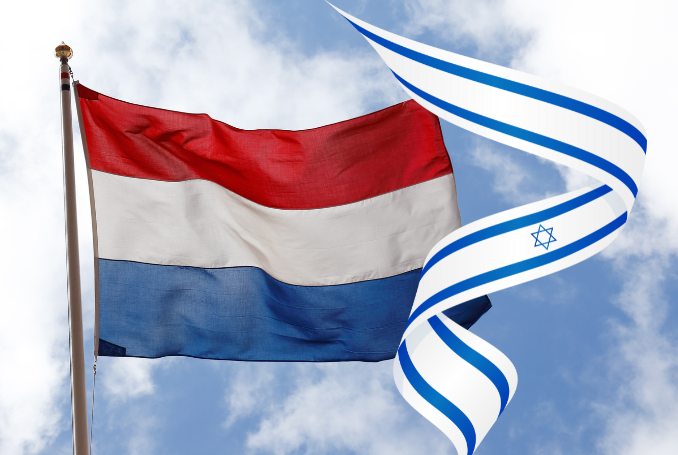Netherlands Declares Israel a National Security Threat Amid Disinformation Concerns
In a significant shift in diplomatic relations, the Netherlands has officially classified Israel as a threat to its national security for the first time. This designation comes from the Dutch National Coordinator for Security and Counterterrorism (NCTV), the country"s primary agency responsible for counterterrorism efforts. The report highlights concerns over Israel"s alleged attempts to manipulate public opinion and policymaking in the Netherlands through disinformation campaigns.
Background & Context
The inclusion of Israel on the NCTV"s list marks a notable change in the Netherlands" approach to foreign relations, particularly with a nation that has been a longstanding ally. Historically, Israel has enjoyed a favorable standing in Dutch politics, but recent geopolitical developments have strained these ties. The NCTV"s report emphasizes the growing concern over foreign influence operations targeting Dutch citizens and institutions, a phenomenon that has been under scrutiny in various countries worldwide.
Disinformation campaigns are not new in the digital age; however, the specificity of the accusations against Israel has raised eyebrows. The report suggests that these campaigns are aimed at swaying public opinion and influencing policy decisions in favor of Israeli interests, potentially undermining the integrity of Dutch democracy. This development has sparked a broader conversation about the implications of foreign influence in democratic societies.
Key Developments
The NCTV"s report outlines several strategies allegedly employed by Israel, including the dissemination of misleading information through social media platforms and other channels. These tactics reportedly aim to create a biased narrative that favors Israeli government perspectives while discrediting opposing viewpoints. The implications of such activities are profound, particularly in a country like the Netherlands, which prides itself on democratic values and freedom of expression.
In recent years, this issue has garnered attention following a series of incidents involving foreign interference in national elections and public discourse across Europe and the United States. As previously reported, similar situations have unfolded in other nations, underscoring the growing threat of disinformation as a tool of statecraft. The NCTV"s findings have prompted a call for increased vigilance and proactive measures to combat such threats.
\n\n
Image for Netherlands Declares Israel a National Security Threat Amid Disinformation Concerns
Broader Impact
The classification of Israel as a national security threat is likely to have far-reaching implications for Dutch-Israeli relations and could influence broader European policies towards Israel. Experts suggest that this move may lead to heightened scrutiny of Israeli activities within the EU and could catalyze similar assessments from other member states. The potential for coordinated European responses to perceived foreign influence operations is a topic of increasing relevance in the current geopolitical climate.
Moreover, this development may resonate with various segments of Dutch society, particularly among those advocating for Palestinian rights and a reevaluation of the Netherlands" foreign policy towards Israel. The discourse surrounding Israel"s actions, especially in relation to the ongoing Israeli-Palestinian conflict, is expected to intensify. As public awareness grows, the government may face pressure to reassess its diplomatic stance and engagement with Israel.
What"s Next
Looking ahead, the Dutch government is likely to undertake a comprehensive review of its policies regarding foreign influence and disinformation. This could involve enhanced collaboration with other European nations to establish a unified front against such tactics. Additionally, the NCTV may implement measures to educate the public about disinformation and the importance of critical media consumption.
As the situation evolves, ongoing monitoring of Israel"s interactions with Dutch institutions will be crucial. Stakeholders from various sectors, including academia, media, and civil society, will need to engage in discussions about safeguarding democracy against foreign manipulation. The Dutch government’s response to these findings and its implications for international relations will be closely watched by observers around the globe.
For further insights on international relations, see our related coverage on recent developments between Vietnam and China, highlighting similar concerns about foreign influence.

Image for Netherlands Declares Israel a National Security Threat Amid Disinformation Concerns


![[Video] Heavy clashes and gunfire reported in Baghdad, Iraq](/_next/image?url=%2Fapi%2Fimage%2Fthumbnails%2Fthumbnail-1768342239932-848qsh-thumbnail.jpg&w=3840&q=75)




![[Video] Gunfire between Iraqi security forces and Sadr militias in Baghdad](/_next/image?url=%2Fapi%2Fimage%2Fthumbnails%2Fthumbnail-1768343508874-4redb-thumbnail.jpg&w=3840&q=75)
